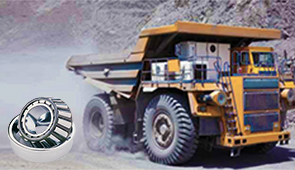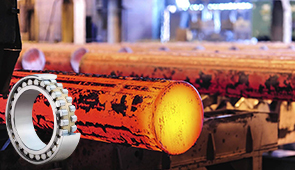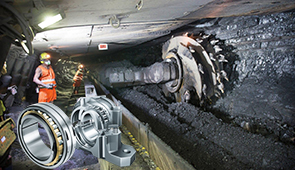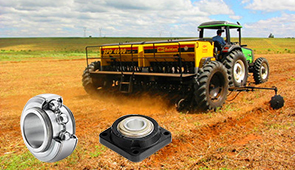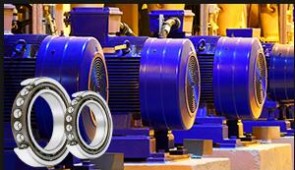What happens if ball bearings fail?
Ball bearings are a critical component of many machines and equipment. They act as a support for the rotating shafts and wheels of the machine, allowing them to spin smoothly and efficiently.
If ball bearings fail, your machine will not be able to work properly, which can lead to significant damage or even destruction of the equipment.
Machine may stop working
If the ball bearings fail, there are several possible outcomes. The most likely is that the machine will simply stop working. This is because the ball bearings are part of a system that contains other components that are necessary to keep the machine functioning. If they are not working as they should, it can have serious consequences for the operation of the machine.
The second possible outcome is that instead of stopping altogether, the machine may continue to run but at a reduced capacity or speed. This could happen if one or more of the other components affected by a failure in the ball bearing system are not operating properly and need some sort of repair or replacement in order to work at full capacity again.
The third possibility is that instead of stopping or running at reduced capacity and speed, the machine may continue running but with some problems such as vibration or noise. This can be quite dangerous for anyone who comes into contact with it and can also cause damage to other parts of the machine itself and eventually lead to further problems down the road if not fixed immediately.
Maintenance costs will increase
Ball bearings are used in many different types of equipment. If they fail, the equipment they are in will not work properly or at all. When this happens, maintenance costs will increase as well as downtime.
Maintenance costs increase because you may have to replace or repair the entire machine. This can be quite expensive, especially if it is a larger machine that does not have easy access to all its parts. If you have to send it off for repairs, there will be additional costs for shipping and labor.
Downtime also increases when ball bearings fail because production stops until the bearing is replaced or repaired. This means there will be less product produced and fewer profits earned from that particular type of product.
Cause damage to other components
Most bearings are used in assemblies that have other components. These other components may be damaged if the bearing fails.
The damage from a failed bearing is usually significant enough to require replacement of the entire assembly.
The most common way for a bearing to damage another component is by separating it from its mountings. The resulting vibration can cause the affected part to break or wear out prematurely.
Another source of damage is overheating. If the bearing becomes too hot, it can melt or deform the housing or shaft, causing distortion and premature wear of other parts in the assembly.
If a car’s bearings fail, the wheels will wobble out of control
Ball bearings are used in many different types of applications, from automobiles to industrial equipment. They can be found in almost every type of machinery and make it possible for machines to move smoothly and efficiently.
When ball bearings begin to fail, they cause problems for the machinery they’re used in because they can no longer support the weight of whatever is being moved by the mechanism. This often results in damage to other parts of the machine as well as potential injury to anyone working with them.
In an automobile, failing ball bearings can cause problems with steering or suspension components that could result in loss of control while driving or even an accident if the driver isn’t able to maintain control over their vehicle.
Bearing failure due to various reasons
The failure of a ball bearing is a very rare occurrence, but it can happen. The most common cause is fatigue, when the bearing is subjected to repeated heavy loads.
Bearings can also fail because of improper installation or poor lubrication. Serious damage can occur if the lubricant is contaminated or if the lubricant is not changed regularly.
When a ball bearing fails, it usually does not do so suddenly or catastrophically; instead, it gradually deteriorates over time. This means that you may not be aware of any problem until you notice that there is an unusual amount of vibration under load or that your equipment has become noisier than usual. These types of problems are often mistaken for other causes such as poor alignment or worn gears.
Ball bearings ensure proper machine operation
Ball bearings are an integral part of many mechanical systems and devices. As the name suggests, these are bearings that have balls at their center. These balls are held in place by a cage that can move freely so as to provide motion to a shaft or axle. The balls allow for smooth rotation and reduce friction.
Ball bearings can be found in a wide range of applications, from appliances to motors, from aircraft engines to bicycles. The main reason why they are used so extensively is because they make it possible for rotating parts to rotate without having any contact with each other. This prevents wear and tear on both parts and thereby extends their life span considerably.
Ball bearings are an essential component of your vehicle’s engine, allowing the crankshaft to spin smoothly and efficiently. However, there are instances when during operation, ball bearings can fail due to a defect or improper maintenance. When this happens, the metal shield that protects the ball bearings is destroyed. metal shards are sent into the oil stream and cause everything to stop spinning. The metal shavings of an exploded ball bearing can also damage your engine. That is why it is so important that you understand how a ball bearing works so that you know where they’re located and how they work in conjunction with other parts of your engine; this will help you understand how they fail as well.
UCTH213-40J-300 with Setscrew(inch)
CNSORDERNO: Normal-duty(2)
TOGN: UCTH213-40J-300
SDI: B-R1/8
SD: 2 1/2
UCTH212-39J-300 with Setscrew(inch)
CNSORDERNO: Normal-duty(2)
TOGN: UCTH212-39J-300
SDI: B-R1/8
SD: 2 7/16
UCTH212-38J-300 with Setscrew(inch)
CNSORDERNO: Normal-duty(2)
TOGN: UCTH212-38J-300
SDI: B-R1/8
SD: 2 3/8
UCTH212-36J-300 with Setscrew(inch)
CNSORDERNO: Normal-duty(2)
TOGN: UCTH212-36J-300
SDI: B-R1/8
SD: 2 1/4
UCTH211-35J-300 with Setscrew(inch)
CNSORDERNO: Normal-duty(2)
TOGN: UCTH211-35J-300
SDI: B-R1/8
SD: 2 3/16
UCTH211-34J-300 with Setscrew(inch)
CNSORDERNO: Normal-duty(2)
TOGN: UCTH211-34J-300
SDI: B-R1/8
SD: 2 1/8









